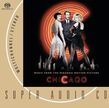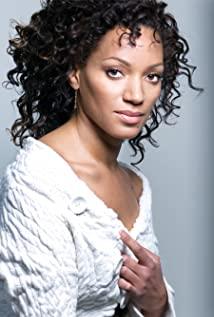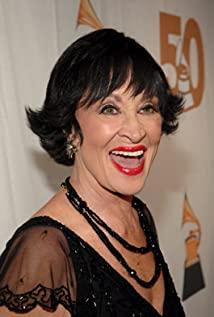In recent years, most of the song and dance films have been lacklustre. Although the popular "Les Miserables" in the past two years has used the "innovative" technology of live recording, it still has not broken away from the curse of "just simply move the stage to the street". , "Yoshiya Rental", "Hairspray" (2007 version) and "Magic Black Forest" directed by "Chicago" director Rob Marshall are almost the same. For musicals that rarely release stage videos, its film version has become a way for audiences (musical fans) to see the show’s elegance. The production of these films is not bad, because they are born in successful musicals. The films are conscientious in preserving the taste of the original drama, but they are a little constrained in the presentation of the images, so that most of these song and dance films have become moderate works.
The decline of musicals is largely due to the fact that the new generation of audiences can no longer accept the act of singing and singing in their lives. This kind of joy of singing and dancing is really too 1950s. The outstanding feature of "Chicago" is that it strengthens the role of the word "movie" in the film adaptation of a musical. The story of "Chicago" is related to the stage. As a movie, "Chicago" treats almost all of the song and dance fragments into the imagination of Roxie, who dreams of becoming a song and dance star. Editing is an important element in which it regards the film as the first priority. The collage of images not only allows reality (ordinary dialogue) and imagination (sing and dance) to appear alternately, the difference in scenes and costumes between the two can also widen the distance between reality and imagination; this kind of different time and space obtained through clipping At the same time (in fact, alternately), it is also the most original charm of video and editing. It can also be said that this two-line parallel approach is a modern structure. Although the structure has been broken by other non-song and dance films, it is difficult to see in the golden age musical and contemporary musical adaptation films.
"When You Good To Mama" is a good proof of this effect. The fierce administrator in the prison, and the "breasted" performer in the theater imagined by the hostess, are the same person, with different costumes, different makeup, the same actor, and the same temperament. The dialogue is real, the characters are all wearing gray prison uniforms, and the desolation of the prison is also reflected in this; singing and dancing are imaginations, so the golden dress, the flattering smile and the huge and sexy body not only describe Mama's greedy and sophisticated character, but also depict Mama's greedy and sophisticated character Roxie's beautiful imagination of stage life, and at the same time the stage of drunken gold fans showed the degeneration of that era, with three birds with one stone. You know, this passage is Mama's dry singing on stage.
In "We Both Reach For The Gun", the trivial editing eases the difficulty of dancing, but because of the editing, Roxie and the reporters can put on puppet makeup, and Billy can exist on the stage at the same time to manipulate the heroine and above the stage. media. This explains the manipulation relationship in the original drama quite clearly.
The subsequent "Roxie" song uses mirrors that are difficult to use on stage (here are the most obvious shots of the film). This passage seems to pay tribute to (or plagiarize?) the classic scene of Orson Welles and Rita Hayward in the playground in "Miss Shanghai." Thousands of mirrors and thousands of characters are all villains with sweet appearances and venomous hearts.
The performance of the actor is also quite eye-catching, the appearance of Velma played by Catherine Zeta Jones has captured the hearts of the audience. The shape of the black bob head is also deeply rooted in the hearts of the people, and with this role won the Oscar female match.
Renee Zellweger is even more amazing. She just came out of the set of "BJ Singles Diary" and played the role of a sexy beauty. The process from chubby to white bone is enviable. Renee Zellweger's appearance is not outstanding, and the skinny body caused by excessive weight loss can't be said to be sexy, but it is quite rare that Zellweger's sexy performance is abruptly performed by Zellweger. Renee's voice is hoarse and slender, which is totally unsuitable for the theater, but in the movie, it looks sweet and has the sophistication of tobacco and alcohol.
The supporting role is very strong and expressive. For example, Queen Latifah, who is one year younger than the heroine, the second actress, has the aura to hold everything. Even Liu Yuling who had a soy sauce was very impressive. In contrast, the actor's fortune is weakened by a group of excellent surroundings.
The original play of "Chicago" competed for the Tony Award, and won the Tony Award for Best Rehearsal Musical for its re-typesetting in 1996, sweeping away many technical awards. The creator Bob Foss is an all-rounder, a top-notch choreographer, and has won the Oscars ("King Hall") and Palme d'Or ("Jazz Spring and Autumn") as a film director. The high configuration of the original drama lays a good foundation for the adaptation into a song and dance film.
The level of "Chicago" is still much weaker than that of the top musicals of the golden age, and there are still many imperfections. The tangency between reality and the two lines of song and dance is also relatively blunt, but compared with the music and dance films of the past 30 years (ordinary , Mediocre, even bad) to compare, has been quite good.
View more about Chicago reviews











